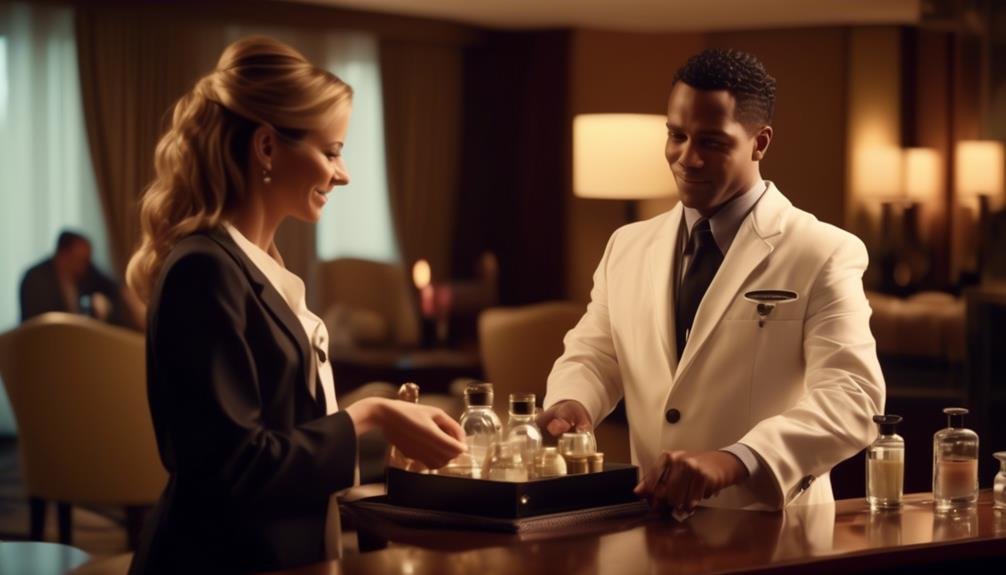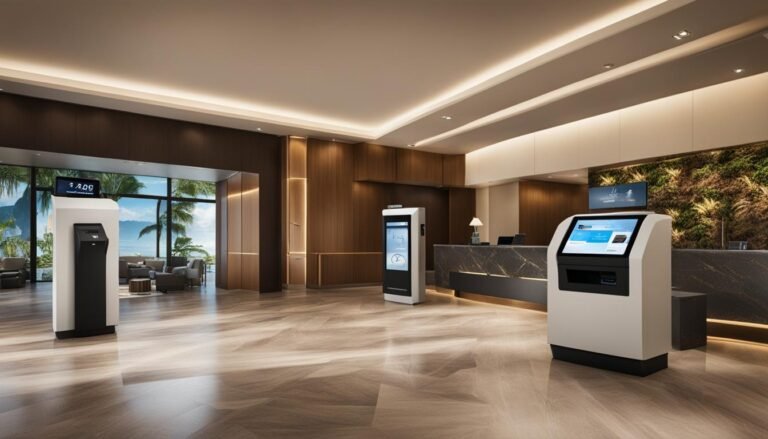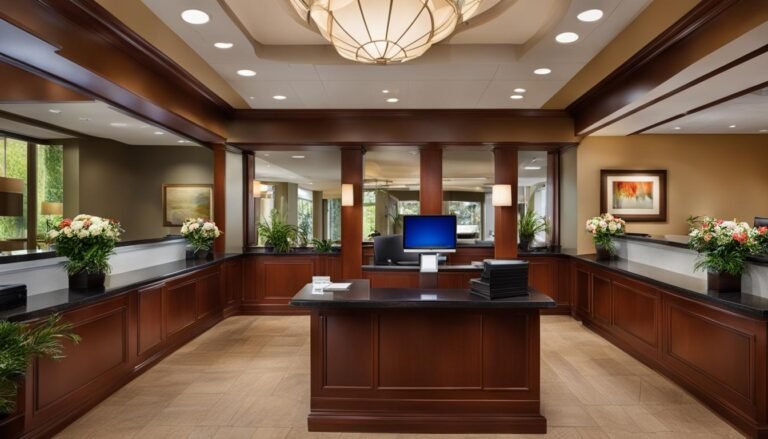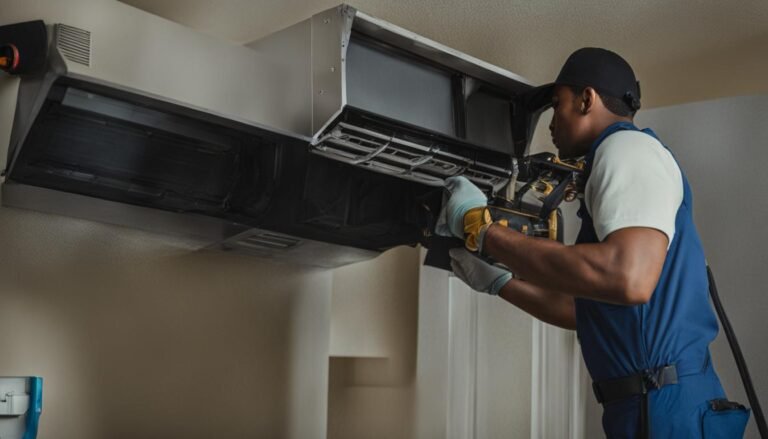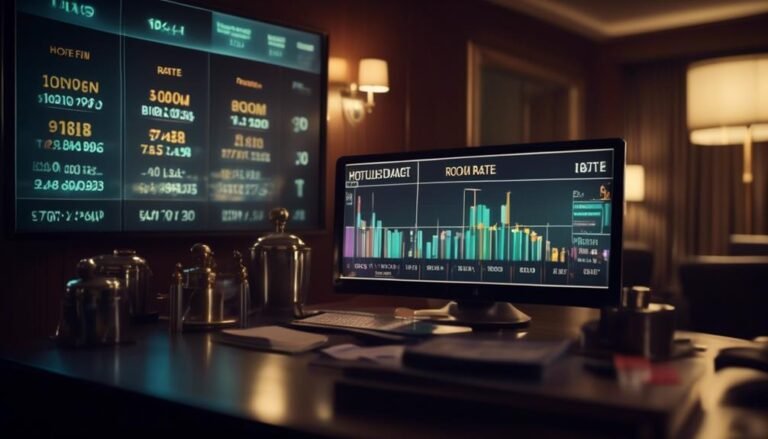Effective Upselling and Cross-Selling Techniques in Hotels
In the competitive landscape of the hospitality industry, mastering the art of upselling and cross-selling is essential for hotels seeking to maximize their revenue and enhance the guest experience.
From understanding guest preferences to leveraging technology and training staff, there are multifaceted strategies that can be employed to achieve success in this area.
However, the true challenge lies in seamlessly integrating these techniques into the guest experience without coming across as intrusive or pushy.
As we explore the nuances of effective upselling and cross-selling in hotels, it becomes evident that the key lies in striking a delicate balance between understanding guest needs and offering personalized, value-added propositions.
Key Takeaways
- Guest preferences can be understood through surveys, online reviews, and direct interactions.
- Leveraging technology allows for personalized recommendations based on guest data.
- Training staff in communication skills and product knowledge enhances upselling success.
- Measuring customer satisfaction and analyzing data helps optimize revenue streams.
Understanding Guest Preferences
Understanding the specific preferences of hotel guests is essential for delivering personalized and exceptional service. To achieve this, hoteliers rely on a combination of guest feedback and market research to gain valuable insights into the needs and desires of their clientele.
Guest feedback, whether obtained through surveys, online reviews, or direct interactions, provides firsthand information about guest experiences, likes, and dislikes. This data is invaluable in understanding what guests appreciate and what can be improved upon.
Additionally, market research plays a crucial role in understanding broader consumer trends and preferences within the hospitality industry. By analyzing market research data, hoteliers can identify emerging trends, popular amenities, and guest expectations, allowing them to tailor their upselling and cross-selling strategies to better meet these demands.
Moreover, market research can help hotels identify new opportunities for upselling and cross-selling by understanding what similar establishments are offering and what guests are responding positively to in the market.
Tailoring Personalized Offers
To effectively tailor personalized offers, hotels leverage insights gained from guest feedback and market research to create targeted upselling and cross-selling strategies that meet the specific preferences and expectations of their clientele. Personalized experiences are crafted based on a deep understanding of individual guest preferences, such as room type, amenities, dining options, and leisure activities. By analyzing guest feedback and conducting market research, hotels can identify patterns and trends, allowing them to anticipate and cater to the unique needs of their guests.
Hotels use targeted promotions to offer personalized experiences that align with guests' preferences. For example, if a guest frequently dines at the hotel's restaurant, the hotel may offer a targeted promotion for a dining package that includes a complimentary dessert or a discount on their favorite menu items. Similarly, if a guest has shown interest in spa services during previous stays, the hotel may provide a personalized offer for a discounted spa package or a complimentary upgrade.
Leveraging Technology for Recommendations
Leveraging advanced data analytics and machine learning algorithms, hotels are employing technology to provide personalized recommendations to guests based on their previous preferences and behaviors. By integrating technology into their operations, hotels can gather and analyze vast amounts of data regarding guest preferences, booking history, on-site behavior, and feedback. This enables them to offer tailored recommendations for room upgrades, amenities, dining options, and additional services that align with each guest's individual preferences.
Technology integration allows hotels to create a seamless and personalized experience for guests, enhancing their overall satisfaction and increasing the likelihood of upselling or cross-selling opportunities. Through the use of advanced algorithms, hotels can identify patterns and trends in guest behavior, allowing for the delivery of targeted and relevant recommendations. This not only benefits the guest by providing a more customized and enjoyable stay but also presents an opportunity for hotels to maximize revenue by offering relevant upsell and cross-sell options.
Training Staff for Upselling Success
How can hotels effectively train their staff to maximize upselling opportunities and enhance guest satisfaction? Training staff for upselling success requires a combination of techniques to improve their communication skills and confidence in offering additional services or upgrades. Role playing exercises are a valuable tool for simulating real-life scenarios and helping staff practice their upselling techniques. During these exercises, employees can learn to identify upselling opportunities, engage with guests, and effectively present the benefits of additional services. Additionally, providing staff with comprehensive product knowledge enables them to confidently recommend relevant upgrades to guests.
To illustrate the effectiveness of training staff for upselling, consider the following table:
| Upselling Training Techniques | Benefits |
|---|---|
| Role playing exercises | Enhances confidence and practical application of upselling techniques |
| Communication skills training | Improves staff's ability to engage with guests and effectively convey the value of additional services |
| Product knowledge sessions | Equips staff with the information needed to make informed and compelling upselling recommendations |
| Feedback and coaching | Allows for continuous improvement and refinement of upselling skills |
Measuring and Optimizing Results
Having equipped their staff with enhanced upselling techniques, hotels can now focus on measuring and optimizing the results of their efforts to maximize revenue and guest satisfaction.
Measuring customer satisfaction is crucial in determining the effectiveness of upselling and cross-selling techniques. Hotels can utilize guest feedback surveys, online reviews, and direct feedback to gauge the impact of upselling on guest experience. Additionally, analyzing the increase in average spend per guest and the frequency of upsell acceptance can provide valuable insights into the success of upselling strategies.
Optimizing revenue streams involves continuously refining upselling and cross-selling tactics based on the data collected. Hotels can identify top-performing upsell offers and replicate their success across different customer segments. Furthermore, analyzing the correlation between upselling and overall customer satisfaction can help in fine-tuning upselling techniques.
Conclusion
In conclusion, it is imperative for hotels to implement effective upselling and cross-selling techniques in order to enhance guest satisfaction and increase revenue.
By understanding guest preferences, tailoring personalized offers, leveraging technology for recommendations, and training staff for upselling success, hotels can optimize their results.
Additionally, measuring and analyzing the effectiveness of these techniques is essential for continual improvement.
Ultimately, these strategies will ensure that hotels remain competitive in the ever-changing hospitality industry.

